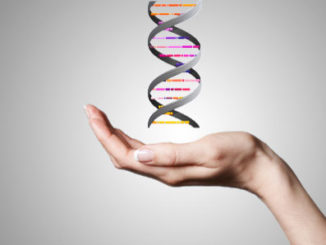Disclaimer: Some articles in this section are to primarily serve entertainment purposes implied through scientific evidence, and may contain points that represent a speculative opinion of the author based on related scholarly publications on in vitro animal and human studies.
Epigenetics is the study of biological mechanisms that will switch genes on and off, to be put as a simplified definition. What does that mean? Well, if you are new to this whole thing, we first need a quick crash course in biochemistry and genetics before learning exactly what is epigenetics: Cells are fundamental working units of every human being. All the instructions required to direct their activities are contained within the chemical deoxyribonucleic acid, also known as DNA. DNA [more…]
Sleep deprivation is quite common among students and working adults. Unfortunately, it causes changes in mood, attention, metabolism, immune system, hormones and much more. If sleep deprivation continues for years, it is very likely to cause mental illness or a body disease. These long-term sleep loss problems are usually linked to changes in gene activity and expression. Does your behavior influence your genes? It does, but it is not only your behavior – development (in children and adolescents), aging, diet, [more…]
It is widely known that a mother has substantial influence over her offspring during prenatal development. Her eating, exercising, and overall lifestyle can have lifelong effects for her children. But what about the father? It turns out that fathers are not off the hook when it comes to prenatal development, and his physical activity may have lasting effects on the epigenetic regulation of gene expression in an area of the brain important for learning and memory: the hippocampus. First, a [more…]
Epigenetics has many connections to our cellular processes. It regulates the expression of our genes, so it wouldn’t surprise us that epigenetics is involved in the regulation of our circadian rhythms as well. But what exactly are these circadian rhythms and how can they be involved in certain processes of health and disease? What are circadian rhythms? Circadian rhythms are biological processes which govern not only our sleep-wake cycle, but also a wide variety of physiological functions, such as hormone release, feeding habits [more…]
It is widely acknowledged that alterations of the intrauterine and early postnatal nutritional and hormonal environment can make individuals more susceptible to the development of diseases in later life, a phenomenon clearly explained by epigenetics. We know that what the mother eats during pregnancy can increase the risk of the baby becoming obese as an adult, among other several health disorders. However, the link between these two is much more complex than we thought, as epidemiological and animal studies have [more…]
When someone is truly scared or traumatized, they might say they were “scarred for life”. While this might seem like a metaphor, recent studies show that fear might actually leave permanent epigenetic marks on your DNA, marks you could potentially pass down to your children or grandchildren. Fear is a basic biological process. In their lifetime everyone has experienced it in one form or another, and we are all afraid of different things. From fear of physical things like spiders, [more…]
Many people believe that breastfeeding is the best gift a mother can offer to her child. It has lots of benefits, not only because breast milk contains the right amount of nutrients, but also because it’s packed with lots of antibodies and biologically active compounds that play a key role in boosting a baby’s immune system. We have already seen how maternal nutrition and lifestyle can shape the development and future health of a baby via epigenetic mechanisms. Among many [more…]
Tens of thousands of years ago, humans formed a unique bond with one particular animal, the wolf. And over time with years of interaction and intervention, these wolves transformed. They became docile and less fearful. They changed in appearance, becoming smaller with floppier ears and curled tails. They even learned how to read human facial expressions and take commands. In effect, they were no longer wolves, but an entirely new species — the dog. Dogs, like many other domestic animals, [more…]
We might say a beautiful woman is born with her looks or that she was endowed with good genes. But what if some of her beauty comes from reversible marks on top of her genes? The epigenetic tags on her DNA might be contributing to her glowing skin, young complexion, and silken hair. Interestingly, there may even be ways in which simple lifestyle changes could adjust these epigenetic tags, modulating the expression of certain genes that promote beauty and health. [more…]
When the Twin Towers came down in 2001, it was one of the most shocking moments in human history. This brazen act of terror traumatized an entire population. For those who lost friends, family, and acquaintances in the tragedy, it was an enormous cause of stress, grief and general departure from a normal state of being. Among the affected, many were pregnant women – some of whom developed PTSD after the incident. As reported in The Journal of Clinical Endocrinology [more…]











